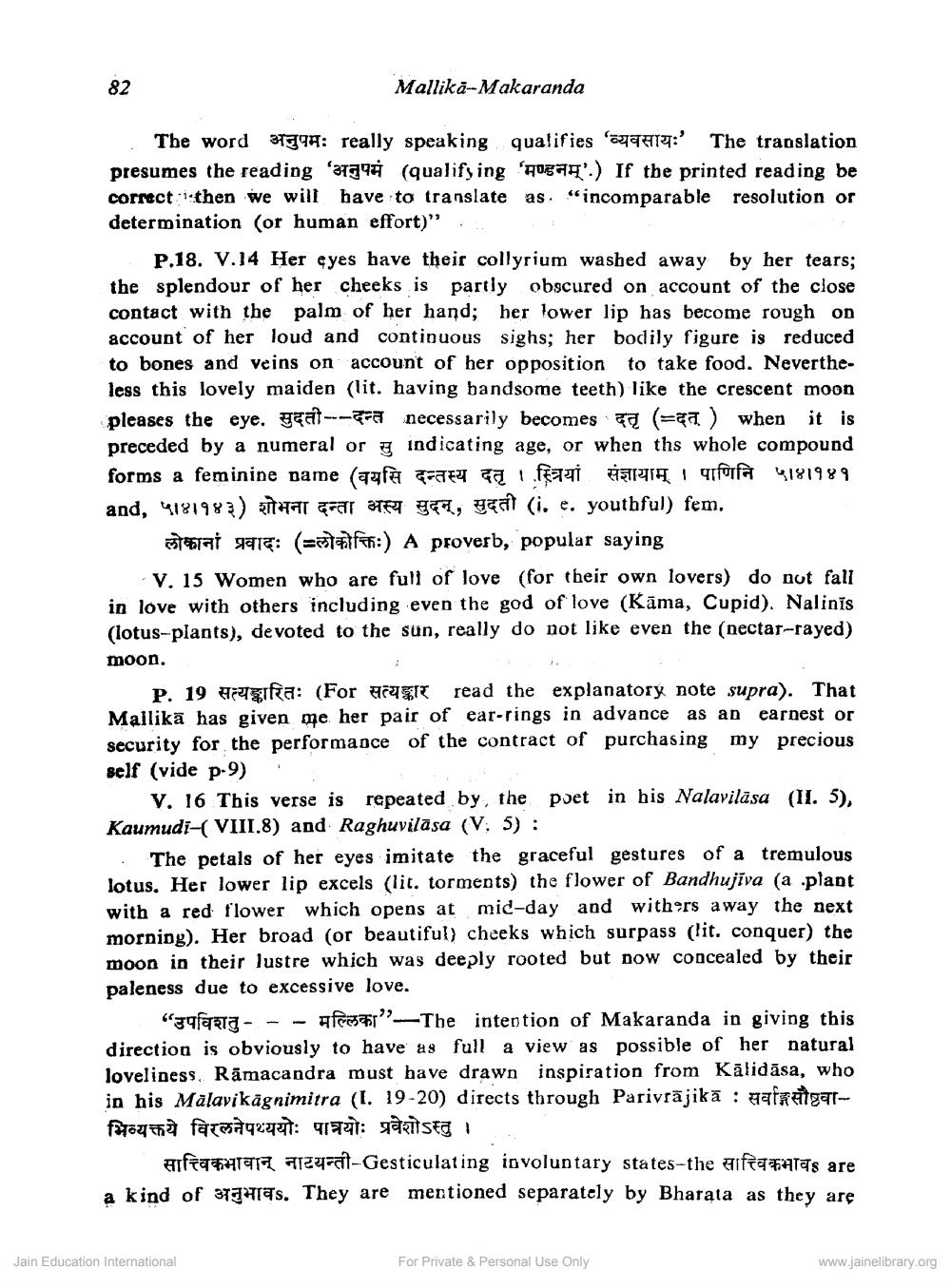________________
Mallika-Makaranda
The word 31997: really speaking qualifies alq' The translation presumes the reading '31948 (qualifying foga'.) If the printed reading be correct then we will have to translate as. “incomparable resolution or determination (or human effort)"
P.18. V.14 Her eyes have their collyrium washed away by her tears; the splendour of her cheeks is partly obscured on account of the close contact with the palm of her hand; her lower lip has become rough on account of her loud and continuous sighs; her bodily figure is reduced to bones and veins on account of her opposition to take food. Nevertheless this lovely maiden (lit. having handsome teeth) like the crescent moon pleases the eye. सुदती---दन्त necessarily becomes दतृ (=दत ) when it is preceded by a numeral or indicating age, or when ths whole compound forms a feminine name (agfe aty ga .fai
arforfa 9181989 and, 4181983) at frar TFT 95, yat (i, e. youthful) fem.
mrat 9914: (= #ff:) A proverb, popular saying V. 15 Women who are full of love (for their own lovers) do not fall in love with others including even the god of love (Kāma, Cupid). Nalinis (lotus-plants), devoted to the sun, really do not like even the (nectar-rayed) moon.
P. 19 gifta: (For HIE17 read the explanatory note supra). That Mallikā has given me. her pair of ear-rings in advance as an earnest or security for the performance of the contract of purchasing my precious self (vide p-9)
v. 16 This verse is repeated by, the poet in his Nalavilāsa (II. 5), Kaumudi-( VIII.8) and Raghuvilāsa (V, 5):
. The petals of her eyes imitate the graceful gestures of a tremulous lotus. Her lower lip excels (lit. torments) the flower of Bandhujiva (a .plant with a red flower which opens at mid-day and withers away the next morning). Her broad (or beautiful) cheeks which surpass (lit. conquer) the moon in their lustre which was deeply rooted but now concealed by their paleness due to excessive love.
" ana - - - Afers " The intention of Makaranda in giving this direction is obviously to have as full a view as possible of her natural loveliness, Rāmacandra must have drawn inspiration from Kālidāsa, who in his Malavikāgnimitra (I. 19-20) directs through Parivrājikā : afratgalभिव्यक्तये विरलनेपथ्ययोः पात्रयोः प्रवेशोऽस्तु ।
सात्त्विकभावान् नाटयन्ती-Gesticulating involuntary states-the सात्त्विकभावs are a kind of stars. They are mentioned separately by Bharata as they are
Jain Education International
For Private & Personal Use Only
www.jainelibrary.org




